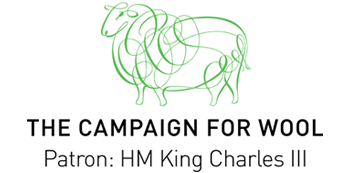The Dumfries House Wool Declaration
The Dumfries House Conference 9 September 2016
The versatility of the Wool fibre has been appreciated by man since the stone ages and to this day keeps the modern consumer cool when they are active and protects the wearer from severe weather elements. Moisture on the skin is wicked away and no man-made fibre has the ability to regulate the body's temperature in all weather conditions like Wool does naturally.
With this Declaration we commit our efforts, time and talents to promote, educate and enforce the wonderful natural attributes of the Wool fibre, listed here below:
1. Wool is 100% natural:
A natural protein fibre that is similar to human hair. Wool grows naturally on sheep.
2. Wool is a renewable resource:
Consuming a simple blend of water, air, sunshine and grass, sheep produce a new fleece every year without depleting finite natural resources.
3. Wool forms part of a natural carbon cycle:
Sheep consume organic carbon by eating plants, and store this in their fleece. Fifty percent of a fleece's weight is pure organic carbon stored in a durable, wearable form.
4. Wool is a natural alternative to wasteful consumer practices:
Research shows that the average life of a Wool garment is 2-10 years, compared to 2-3 years for garments made from other fibres.
5. Wool was made for recycling:
Wool fibres are high quality and durable, capable of re-use and recycling, ultimately reducing land fill disposal. Wool is routinely upcycled into woollen-spun knitwear, insulation and geotextiles – all of which contribute to a circular economy.
6. Wool is biodegradable:
Wool decomposes in a matter of years, releasing valuable nitrogen-based nutrients back into the soil.
7. Wool is naturally odour resistant:
By absorbing moisture vapour, Wool garments leave less perspiration on the skin, reducing odour-causing bacteria. Easily refreshed by airing, Wool garments can be worn longer between washes due to Wool's natural ability to shed dirt and bacteria.
8. Wool is fire resistant & fire retardant:
Naturally high in nitrogen and water content, Wool's unique cell structure requires high levels of oxygen in order to burn, and forms an insulating layer when heated that prevents the spread of flames. Wool does not melt, drip or to stick to the skin when subject to extreme heat and produces less smoke and toxic fumes during combustion.
9. Wool improves indoor air quality:
When used in interior textiles such as carpets and upholstery, Wool absorbs and locks away pollutants such as volatile organic carbons (VOCs) from the air more rapidly than other fibres.
10. Wool is welfare assured:
The major woolgrowing countries namely Argentina, Australia, New Zealand, Norway, South Africa, United Kingdom, United States and Uruguay, all support the IWTO and Campaign for Wool and conform to the strictest standards of animal welfare as embodied in the IWTO Speci cations for Wool Sheep Welfare. The IWTO Specifications are premised on the Five Freedoms of Animal Welfare as set forth by the World Organisation for Animal Health (OIE): freedom from hunger and thirst, freedom from discomfort, freedom from pain, injury or disease, the freedom to express normal behaviour, and freedom from fear and distress. The Five Freedoms also form the basis of strictly enforced national animal welfare legislation in each of these wool-growing countries.
About The Campaign for Wool
The Campaign for Wool is a global endeavour initiated by its Patron, HRH The Prince of Wales, to raise awareness amongst consumers about the unique benefits offered by Wool and call attention to the ecological advantages it delivers. The Campaign was launched by the Patron in January 2010 and has been celebrated in key international markets, such as the United Kingdom, Australia, Spain, Netherlands, Germany, Norway, South Africa, Canada, United States of America, New Zealand, Italy, Japan and China.
About IWTO
With a worldwide membership encompassing the Wool pipeline from sheep to shop, the International Wool Textile Organisation (IWTO) represents the interests of the global Wool trade. By facilitating research and development and maintaining textile industry standards, IWTO ensures a sustainable future for Wool. To learn more about IWTO and its activities, visit www.iwto.org.

Declaration signed, Thank you
Invite others to commit to the principles of The Dumfries House declaration by nominating them below and together we will ensure the environmental responsibility and commercial viability of the wool industry.
Add additional emails by adding a comma after each contact.
Share this Declaration
Nomination sent, Thank you

